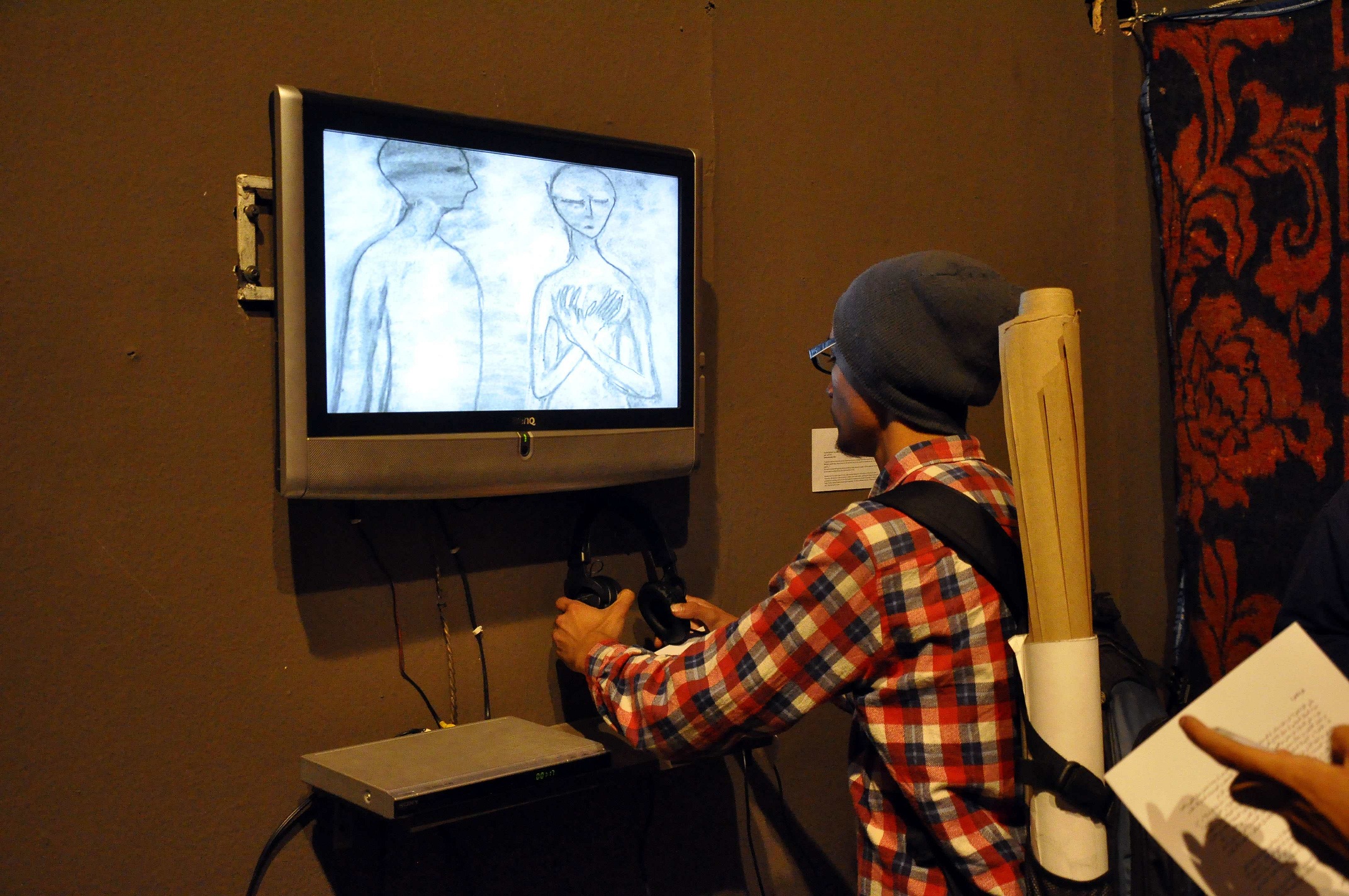By Joseph Fahim
One of the most exciting new discoveries in independent film is Mubi, a multi-platform website that functions as a screening room for art-house films, an outlet for serious art criticism and a space for discussion.
Mubi’s expanding library features a wide array of films, ranging from Roman Polanksi’s classic “Repulsion” and Lars von Trier’s Palm d’Or winner “Dance in the Dark” to obscure titles such as Pere Portabella’s “Nocturne 29.” Picture and sound quality of most films are top-notch, perfectly suitable for home-theater. Shorts cost $1 per view while full-length features cost $2; an $8 subscription gives viewers unlimited access to the movie library.
This month, Mubi has teamed up with Cannes Film Festival’s La Semaine de la Critique (Critics’ Week) sidebar to celebrate 50 years of its programming by showing a retrospective of films from the festival’s history. More than 80 films are free to watch for the first 1,000 views through June 30. Available titles of Mubi’s terrific selection include Arnaud Desplechin’s debut “La vie des morts” (The Life of the Dead), François Ozon’s short “Une robe d’été” (A Summer Dress), Julie Bertucelli’s César winning “Depuis qu’Otar est parti” (Since Otar Left), David Robert Mitchell’s SXSW sensation “The Myth of the American Sleepover” and Duane Hopkins’s criminally under-seen tour de force “Better Things.”
The one film I was most eager to check was “Revolución,” a Mexican omnibus picture I kept chasing throughout last year in different festivals but never managed to watch.
Commemorating the 100th anniversary of the Mexican revolution, the 10 ten-minute shorts features the who’s who of Mexican cinema’s hottest new talents: Carlos Reygadas, Fernando Eimbcke, Amat Escalante, Rodrigo García, in addition to “Y Tu Mamá También” stars — and the film’s producers — Gael García Bernal and Diego Luna.
All 10 movies reflect in one way or another on the legacy of 1910. All are set in the present and the majority tackle the implications of the revolution indirectly, relying on decontextualized episodes that veer toward the nonfigurative. As in all omnibus films like “Paris, je t’aime,” “To Each His Own Cinema” and “11’09’’01,” “Revolución” is uneven and unkempt, discrepant in the adopted aesthetics and type of narratives. The various segments of the film sit uneasily with each other with some directors clearly struggling with the short narrative format.
Yet despite the irregularity of these segments, “Revolución” makes for a highly gripping and an intriguing watch, exploring different shades of the Mexican revolution and asking the most daunting of questions: has it truly succeeded?
“Revolución” is bracketed by two brilliant segments: Fernando Eimbcke’s “The Welcome Ceremony” and Rodrigo Garcia’s “7th and Alvarad.”
Strikingly photographed in black and white, Eimbcke’s opening film centers on a tuba player practicing for an unidentified ceremony.
Eimbcke’s meticulously-composed still frames see the solitary player tirelessly practice for the ceremony, never doubting the purpose, or outcome, of his labor. But the long-awaited guests do not arrive and the ceremony never happens. Everyone leaves, but the player chooses to stay behind, defiantly persisting on playing his tuba. The spirit of the revolution, Eimbcke suggests, doesn’t lie in collective work or immense social changes but in the individual and his willingness to carry the torch.
Eimbcke’s film is unsuccessfully followed by Patricia Riggen’s muddled “Beautiful and Beloved,” a slight account of an American-born young woman attempting to bury her father in his Mexican village. Riggen (“Under the Same Moon”) saddles her classically-told story with too many plot threads, fluctuating in tone between the sentimentality of the drama and the slapstick tendencies of the comedy.
Unlike Eimbcke’s film, Riggen confronts the significance of the revolution front and center. Questioning its lasting impact, the young woman declares, “At the end of the day, the rich stayed rich, the poor, poor.”
The subdued optimism at the heart of “The Welcome Ceremony” and, to a lesser extent, “Beautiful and Beloved” swiftly dissipates with subsequent films, gradually unveiling a distrustful, cynical view of the revolution’s consequences.
Two of the best films in the anthology illustrate this sentiment in a surrealistic way. In “This Is My Kingdom,” Mexico’s most gifted filmmaker Carlos Reygadas (“Battle in Heaven,” “Silent Light”) conjures a grand carnival, realized in garish colors and loud, clashing sounds, where people from every race, creed and class come together for a grand countryside celebration that spirals out of control, turning into a terrifying parade of vandalism.
There is a noticeable, if underscored, schism between the rich and the poor, in their celebrations, in their customs and in their basic faces. The sole ingredient that links them all together is their giddy infatuation for anarchy. The core of any revolution, Reygadas indicates, is people’s hunger for destruction. The picture he paints of contemporary Mexico is marked with violence, confusion and purposelessness.
The most original film in the series is “The Hanging Priest” by “Los bastardos” director Amat Escalante. A twisted Jodorowskian fable shot in sharp black and white, the film begins at what appears to be the height of the revolution when Catholics were widely prosecuted. Two little kids, a boy and girl, wander a barren desert where they spot a priest hung upside down. They free him and he leads them out of the wilderness.
Only at the end of the film do we realize that the setting is the present as the trio cross the jammed highway to reach their final destination: McDonalds.
Like many other nations that once held great aspirations for an egalitarian society with noble ideals, Mexico has succumbed to the ravages of capitalism; the great heritage it once had is nothing more than a punch-line for a dated joke.
The commodification of the revolution is the subject of Rodrigo Plá’s “30/30.” The grandson of revolutionary general Pancho Villa is taken on a tour to celebrate the centenary of the revolution. He repeatedly tries to make a statement about his grandfather but is always thwarted by a mayor who treats the celebration as a forum for photo ops.
Mariana Chenillo (“Nora’s Will”) is more pessimistic, openly asserting in “The Estate Store” that the pre-revolutionary feudalistic conditions remain intact, resurrected in a modern form. A store clerk is forced to take part of her salary in vouchers, a strategy commonly applied pre-1910. Unable to pull together the finances needed for her oral surgery, she attempts to sue her employers only to be fired shortly.
García Bernal and Luna’s contributions are among the weakest links. García Bernal’s coming-of-age story “Lucio” about a boy reassessing enforced religious beliefs taken at face value is somewhat vague while Luna’s “Pacífico” about an upper middle-class father dealing with separation from his family bears little relation to the main theme of the film.
The sublime “7th and Alvarad” by “Mother and Child” director Rodrigo Garcia closes the film on a mournful note. A slow-mo montage of ordinary Mexicans strolling down an indistinguishable avenue is revealed to be Los Angeles’ Hispanic neighborhood of Westlake. A group of revolutionaries march in confident steps among the people. Oblivious to their presence, the revolutionaries appear invisible to the old and young. The world they fought to create evaporated into thin air; their legacy has vanished without a trace.
Despite its flaws, the highly inventive and thought-provoking take by Garcia, Reygadas and Escalante on the Mexican revolution renders “Revolución” among the finest omnibus films of the past couple of decades. The conceptual, philosophical narratives of the film’s most winning segments are what I hope to see in the upcoming Egyptian omnibus film “18 Days.”
Watching “Revolución,” I couldn’t help thinking about our very own revolution and its future repercussions. Mubarak’s Egypt was no different than pre-revolution Mexico, both damaged by tyrants (Porfirio Díaz in Mexico) blinded by power addiction. The Mexican revolutionaries set out to establish a just, prosperous society, but it never fully materialized. One hundred years later, the accomplishments of their revolution are brought into question.
Those who believe that the revolution is over are without a doubt deluded. This is just the beginning, and a hundred years from now, our revolution will certainly be viewed, and judged, from a starkly different perspective.
“Revolución” is currently available for free viewing at Mubi. http://mubi.com/programs/la-semaine-de-la-critique

Patricia Riggen’s “Beautiful and Beloved”.



